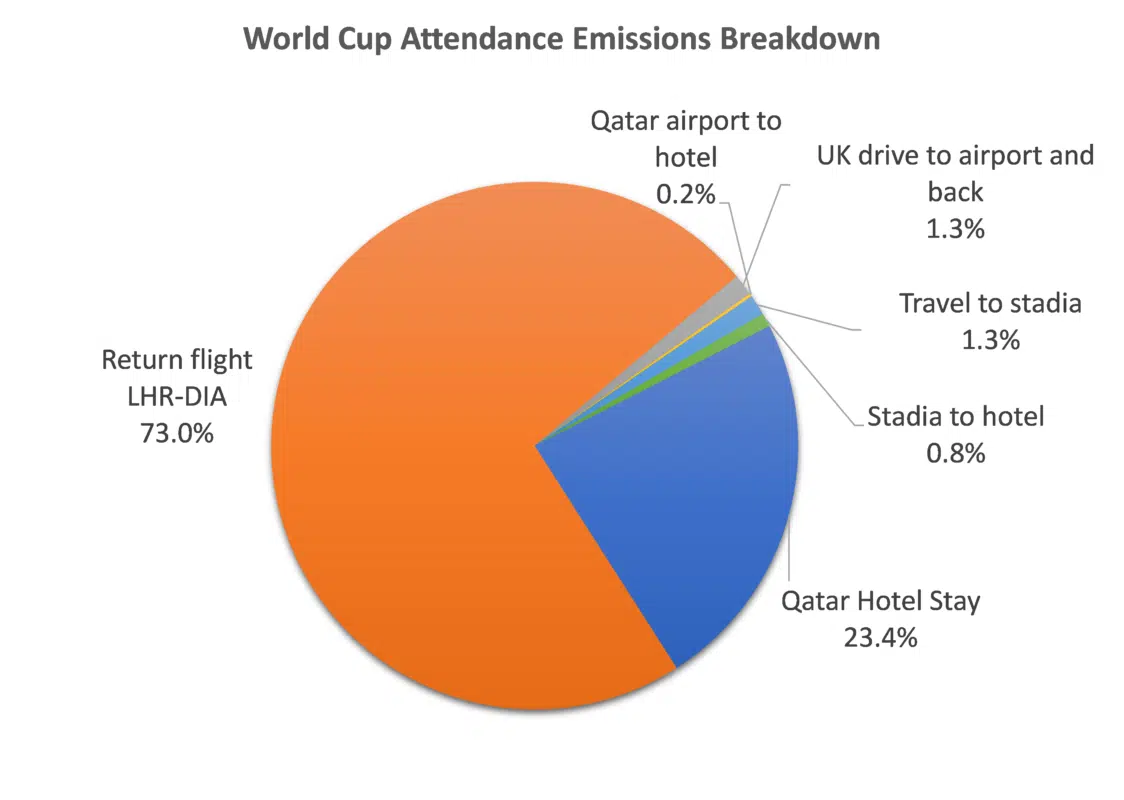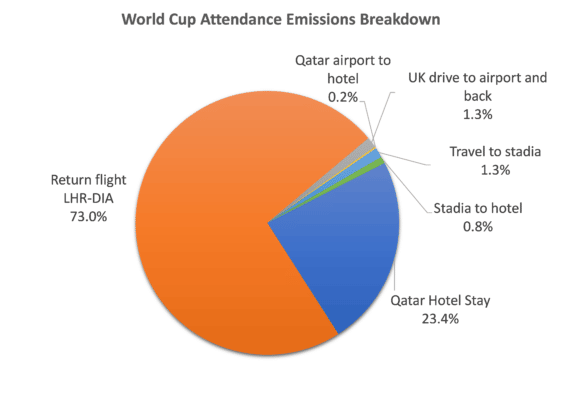Blog, Carbon Footprint, Events, News
How Does Watching the World Cup at Home Compare to Travelling to the Games?
As the 2022 edition of the FIFA World Cup continues in Qatar, more focus is being given to the carbon impact of this event. With a cumulative attendance of over 2.45 million people for the first 48 matches alone, the impact of fans travelling from all over the world to Qatar for the event is huge. Despite this, the number of fans viewing games at home remains large, with 18.7 million in UK watching England vs Wales.
Based on a fan travelling to Doha from London Heathrow for a 6-night hotel stay, viewing 8 games in total, we have compared the emissions associated with this to a fan remaining at home and watching the 8 games. For this we have included the heating of the residence, due to the unique winter timing of this world cup, and the associated electrical items required to view the games. It is important to add that the emissions associated with food and drink have been omitted for both scenarios. The carbon impact of visiting the stadiums themselves have also been omitted due to a lack of available data for the state-of-the-art air-conditioned arenas.
We found that the fan travelling to Qatar generated 33 times as much CO₂e as the fan watching from home, with a resulting total of 2.2 tCO₂e generated. Around 73% of the total CO₂e generated by the fan travelling to Qatar was from the flight itself. The hotel stay was the next largest contributor at just over 23% of the total emissions.
To place this into context, the average per capita emissions in the UK was 5.2 tCO2e in 2021. This is emissions released within the UK only, so it isn’t a true consumption based emission. However, it offers us some perspective. For example, if an additional 2.2 tCO2e were emitted to attend the event in Qatar, this alone would increase a person’s annual carbon emissions by 42%.
That is around 5 months of average per capita emissions released by the UK. This shows us how far we still have, to get the emissions of travel down to net zero. There is important work in the skies ahead…


